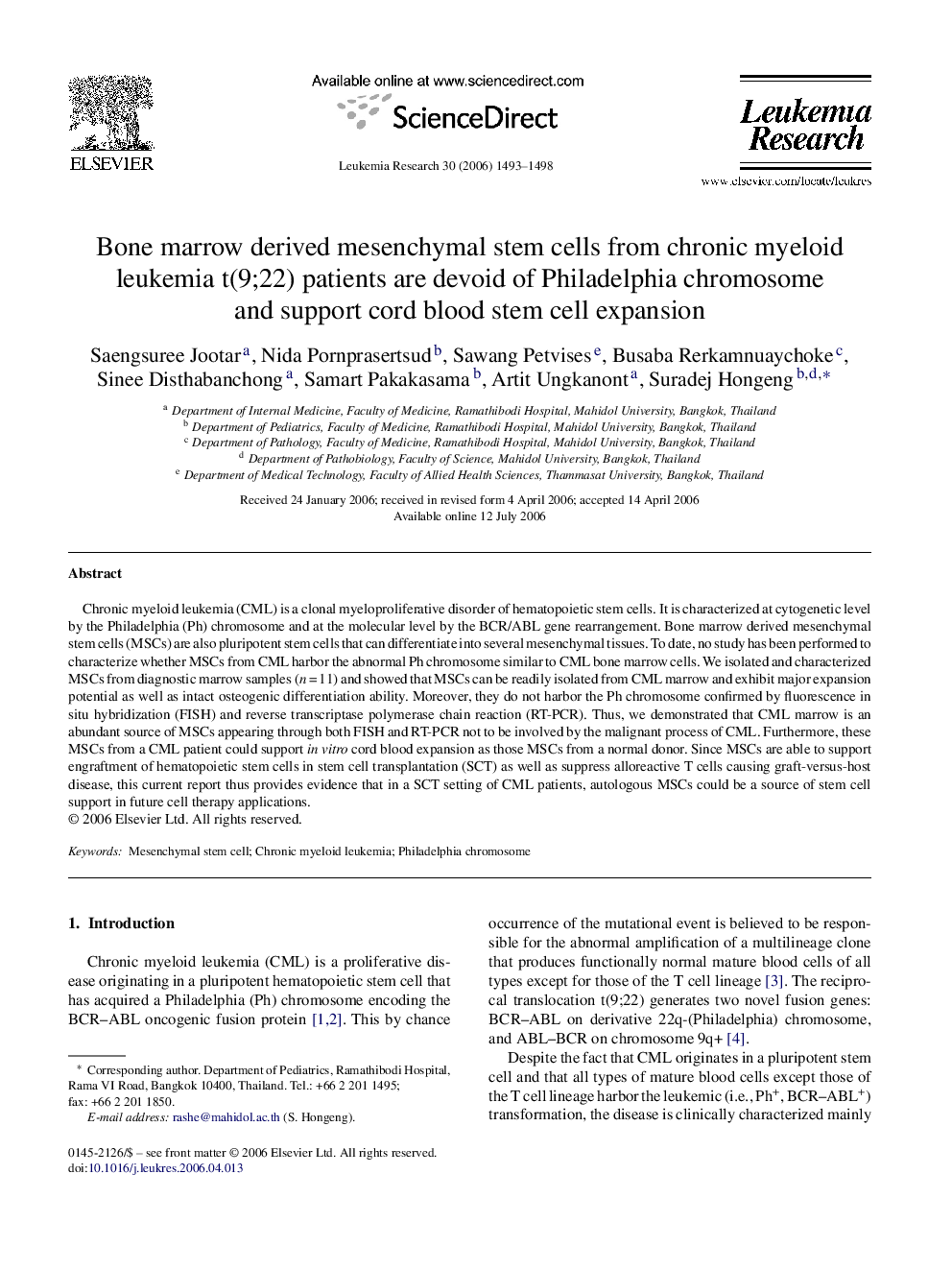| Article ID | Journal | Published Year | Pages | File Type |
|---|---|---|---|---|
| 2138650 | Leukemia Research | 2006 | 6 Pages |
Chronic myeloid leukemia (CML) is a clonal myeloproliferative disorder of hematopoietic stem cells. It is characterized at cytogenetic level by the Philadelphia (Ph) chromosome and at the molecular level by the BCR/ABL gene rearrangement. Bone marrow derived mesenchymal stem cells (MSCs) are also pluripotent stem cells that can differentiate into several mesenchymal tissues. To date, no study has been performed to characterize whether MSCs from CML harbor the abnormal Ph chromosome similar to CML bone marrow cells. We isolated and characterized MSCs from diagnostic marrow samples (n = 11) and showed that MSCs can be readily isolated from CML marrow and exhibit major expansion potential as well as intact osteogenic differentiation ability. Moreover, they do not harbor the Ph chromosome confirmed by fluorescence in situ hybridization (FISH) and reverse transcriptase polymerase chain reaction (RT-PCR). Thus, we demonstrated that CML marrow is an abundant source of MSCs appearing through both FISH and RT-PCR not to be involved by the malignant process of CML. Furthermore, these MSCs from a CML patient could support in vitro cord blood expansion as those MSCs from a normal donor. Since MSCs are able to support engraftment of hematopoietic stem cells in stem cell transplantation (SCT) as well as suppress alloreactive T cells causing graft-versus-host disease, this current report thus provides evidence that in a SCT setting of CML patients, autologous MSCs could be a source of stem cell support in future cell therapy applications.
